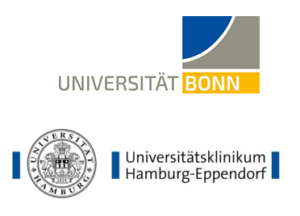Research Project 7:
Lysosomal gene transcription and protein expression
Principal Investigator
Prof. Dr. rer. nat. Thomas Braulke
FOR2625 funded co-workers
associated co-workers
Emanuela Capriotti, MSc

Project Summary
Proteins related to lysosomal biogenesis and the autophagy pathway are subject to global transcriptional regulation, in which the transcription factor EB (TFEB) and several repressors play key roles. The transcriptional activity of TFEB is regulated by phosphorylation/ dephosphorylation of multiple conserved serine residues which determine the localization of TFEB either at the surface of lysosomes, in the cytoplasm, or the nucleus. In the first funding period, we established a variety of mass spectrometry (MS) tools for the identification and quantification of TFEB posttranslational modifications (PTMs) and the targeted absolute quantification of 144 verified murine lysosomal proteins from any type of mouse sample. These approaches led to the identification of 30 phosphorylation and 7 acetylation sites in TFEB resulting in >30 isoforms. Substitutions selected acetylation sites completely inhibited the transcriptional activity of TFEB due to cytosolic retention by unknown mechanisms. In the second funding period we will define PTM patterns for individual TFEB isoforms, followed by combinatorial site-specific substitutions, analysis of subcellular localization, transcriptional activity, and the effect of these mutants on the proteome of lysosomes and in subpopulations of lysosomes. Furthermore, we plan to identify interaction partners of acetylated and non-acetylated TFEB and their role in transcriptional activation of lysosomal and autophagy genes. Finally, TFEB-independent mechanisms of transcriptional suppression of multiple lysosomal genes will be analyzed in lysosomal disease-related cells. These studies will provide deeper insight into the role of TFEB PTMs for autophagy and lysosomal function as well as the interplay between transcriptional activators and repressors.
References
Ponnaiyan S, Akter F, Singh S, Winter D*. Comprehensive draft of the mouse embryonic fibroblast lysosomal proteome by mass spectrometry based proteomics. Sci Data 2020; 7:68.
Singh J, Kaade E, Munte lJ, Bruderer R, Reiter L, Thelen M, Winter D*. Systematic Comparison of Strategies for the Enrichment of Lysosomes by Data Independent Acquisition. J Proteome Res 2020; 19:371-81.
Khundadze M, Ribaudo F, Hussain A, Rosentreter J, Nietzsche S, Thelen M, Winter D, Hoffmann B, Afzal MA, Hermann T, de Heus C, Piskor EM, Kosan C, Franzka P, von Kleist L, Stauber T, Klumperman J, Damme M, Proikas-Cezanne T, Hübner CA. A mouse model for SPG48 reveals a block of autophagic flux upon disruption of adaptor protein complex five. Neurobiol Dis 2019; 127:419-31.
Schmidtke C, Tiede S, Thelen M, Käkelä R, Jabs S, Makrypidi G, Sylvester M, Schweizer M, Braren I, Brocke-Ahmadinejad N, Cotman SL, Schulz A, Gieselmann V, Braulke T. Lysosomal proteome analysis reveals that CLN3-defective cells have multiple enzyme deficiencies associated with changes in intracellular trafficking. J Biol Chem 2019; 294:9592-604.
